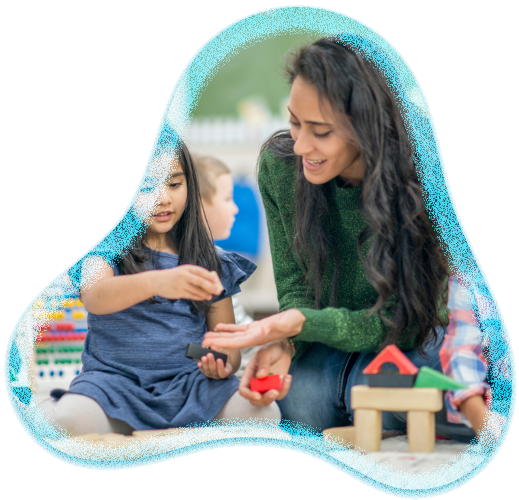



By providing comprehensive training on Montessori philosophy, including the role of the teacher, the prepared environment, and the importance of fostering independence in children.
Understanding the key developmental stages from ages 1-3 (Toddler) and 3-6 (pre-schooler) and how Montessori methods cater to these stages.
Guidance on creating a Montessori-prepared environment, including furniture arrangement, material placement, and maintaining an orderly classroom.
Training on managing daily routines, smooth transitions between activities, and maintaining a calm, productive classroom atmosphere.
Detailed workshops on implementing Montessori curriculum areas—Practical Life, Sensorial, Language, Mathematics, and Cultural Studies.
Training on creating and adapting lesson plans that align with Montessori principles and meet the needs of individual students.
Instruction on the correct use and presentation of Montessori materials, ensuring teachers can effectively demonstrate and guide students through activities.
Guidance on creating and adapting materials to enhance the learning experience based on the school’s specific curriculum needs.

Training teachers on how to observe children effectively, identifying developmental milestones, and tailoring instruction to meet individual needs.
Introducing non-traditional assessment techniques suitable for a Montessori classroom, focusing on progress tracking and developmental assessments.
Offering strategies for educating parents about Montessori methods, ensuring alignment between home and school environments.
Training on how to communicate student progress and concerns to parents effectively, fostering a collaborative relationship.
Providing continuous professional development workshops that cover advanced Montessori topics, emerging educational trends, and new research in child development.
Establishing peer mentoring programs where experienced Montessori teachers support and guide newer teachers.